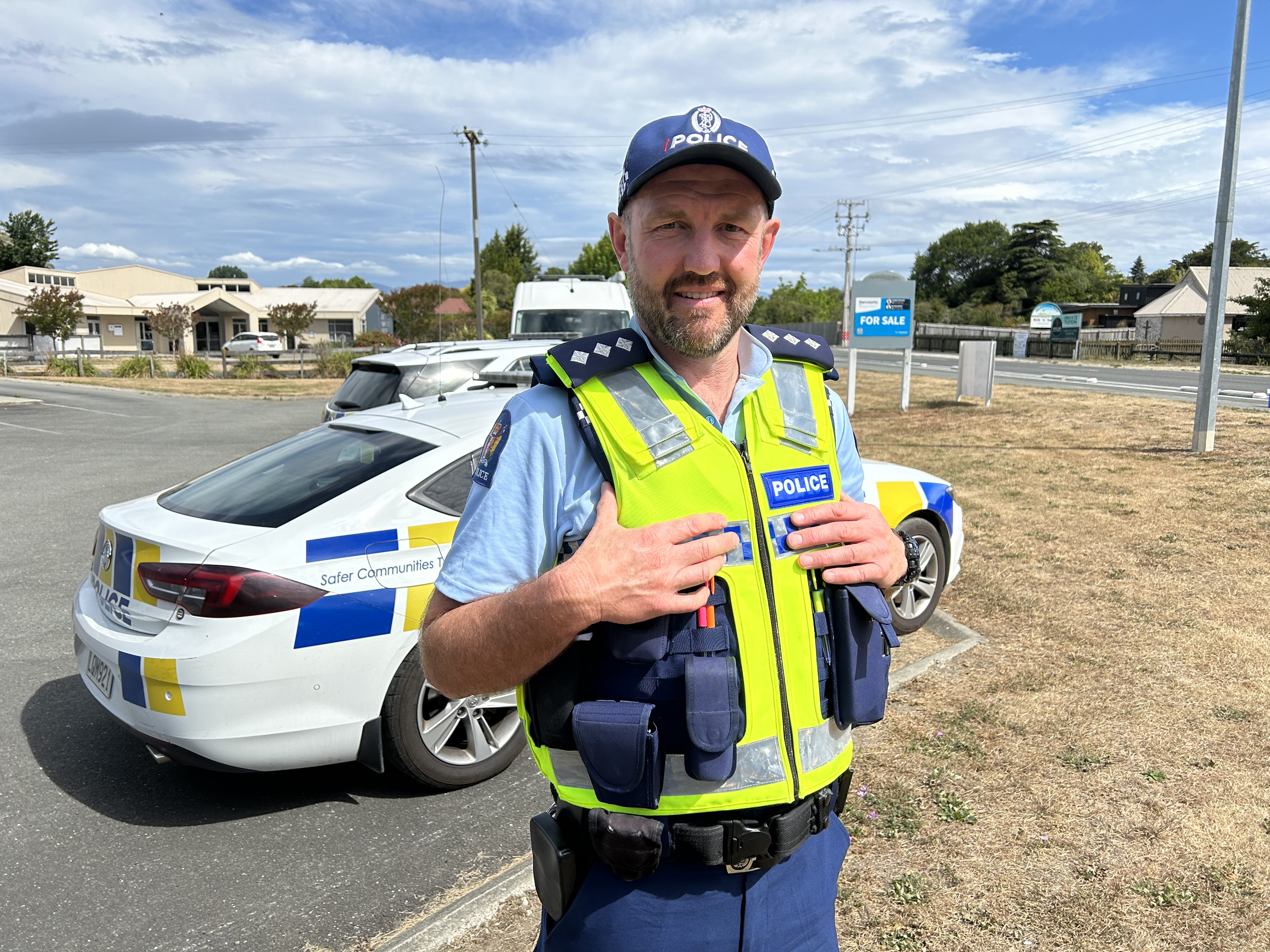Tasman Police crack down on drink driving


Tasman road policing manager, Hamish Chapman, says a high volume of drink drivers were processed last summer. Photo: Gordon Preece.
A high volume of drink drivers is something the local police force want decreased this summer.
Tasman road policing manager, Hamish Chapman, says minor accidents involving alcohol and a high number of drink drivers were processed in the 2022-2023 summer holiday period in the Tasman area, and a series of local checkpoints will be operating in the lead-up to clamp down the risk.
“One is one too many because the evidence shows us that once you have a number of drinks, you’re impaired, you don’t make good decisions on the road, and therefore if we take those drivers off the road, it makes it safer for everyone,” he says.
“A big aim of [the checkpoints] is prevention-messaging to the public that we will be out and about over Christmas and New Year, and we will be testing you for alcohol.
“So please, when you go out and about, feel free to enjoy a beer or a wine… but we actually want you starting to think about how you’re getting home with that sober driver that’s well rested, hasn’t had any alcohol, and is going to get everyone in the vehicle or at the party home safely.”
Hamish and about six fellow police staff conducted a late afternoon alcohol checkpoint in Māpua last Friday, which he says will be repeated up to three more times in the lead-up to summer holidays, and the locations will vary.
“If [drivers are] out [late afternoon], they’re often heading to a barbecue or a function and think ‘oh, the cops are out tonight’, so it actually forces them to do their planning now, how are they getting home... you could be expected to be stopped [by police], so think about your journey,” he says.
“We’re also looking for things like network coverage and the dosage or the intensity of the enforcement, so we might do short and sharp things and move on so we’re all over the place, and the public can’t predict where we might be.
“If we take away any patterns in our behaviour, the public don’t get used to that pattern of behaviour, so therefore they have to expect this anywhere, anytime.”
The official Christmas New Year holiday period begins on 22 December at 4pm, and ends on 3 January at 6am.
Hamish also says being a responsible event host in summer and planning for New Year celebrations was paramount.
“If you’re somewhere and you see someone you think or you know are going to go and drive, have the conversation with them, ‘you’re not in a state to drive, you’ve been drinking’, and see if you can suggest another way home… so it takes away that temptation,” he says.
“If you’re having a barbecue, it doesn’t mean you have to drink [alcohol], so make sure you’ve got non-alcoholic drinks.
“[For New Year] if you do that planning at the start and follow it, you and the people you’re with are going to go out and have a good time and get home safely, and you’re going to wake up in the morning having enjoyed your night, and there’s no consequences for poor decision-making in the previous evening.”
